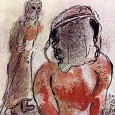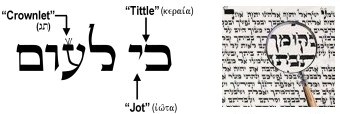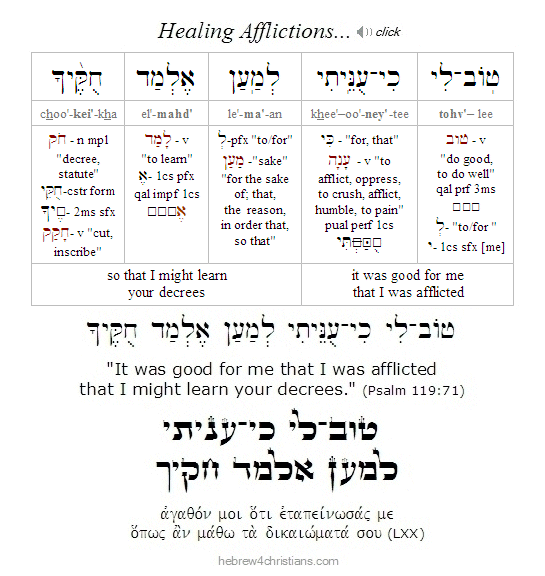|
|
|||||||||||||||||||||
 |
|||||||||||||||||||||
 |
|||||||||||||||||||||
|
|
||||||||||||||||||||||||||||
|
The Jewish sages assumed that there are no "unnecessary words" in the written Torah. All 304,805 letters are carefully counted by the soferim (scribes). Moreover, Yeshua spoke about "kotzo shel Yod" (קוֹצוֹ שֶׁל יוֹד), that is, the smallest stroke atop the smallest Hebrew letter, in order to stress that every detail of God's revelation has its purpose (Matt. 5:18; Luke 16:17). Every "jot and tittle" has its place, and this implies that words spelled in unusual ways, the exact order of words in a phrase, and various textual oddities (such as redundant words, oversized or undersized letters, etc.) were intended to teach us something we might otherwise not have known.
Our Torah portion this week begins with a description of the birth of Jacob and Esau. Isaac and Rebekah had been married for twenty years but were still without an heir to carry on the family line. The Torah then states that "Isaac entreated the LORD before his wife, because she was barren" (Gen. 25:21). The sages asked why the Torah mentioned the prayer before mentioning its purpose. Wouldn't it have made more sense to first mention that Rebekah was barren and then to say that Isaac prayed for her? טוֹב־לִי כִי־עֻנֵּיתִי לְמַעַן אֶלְמַד חֻקֶּיךָ tohv'-lee · khee-oo·ney'·tee · le·ma'·an · el·mahd · choo·kei'·kha "It is good for me that I was afflicted,
The students of bar Yochai asked him: Why did the manna not fall once a year [as opposed to once a day]? He answered, I will give you a parable: It can be compared to a mortal king who had a son for whom he provided food once a year; as a result, he saw his son but once a year. Thereupon he provided for his maintenance daily, so that he called upon him every day. The same is with Israel. One who had four or five children would worry and say, 'Perhaps no manna will fall tomorrow, and we will all die of hunger.' Thus they turned their faces to heaven in prayer (Yoma 76a). Just as God humbled Israel with manna in the desert, so He humbles us. "Give us this day our daily bread..." The purpose of affliction is ultimately good and healing: God humbles us with manna so "that he might make you know that man does not live by bread alone, but man lives by every word that comes from the mouth of the LORD" (Deut. 8:3). In other words, God uses the discipline of affliction to lead us to the truth. We often pray that our problems be taken away, but God sometimes ordains these very problems so that we will draw near to Him... Yeshua told us, "Your heavenly Father knows what you need before you ask Him." Many of us are slow to learn, but God is patient with those whom He disciplines. The goal is to never lose sight of what's most important, which is God Himself.
|
|
Hebrew for Christians |
|||||
|
|||||



